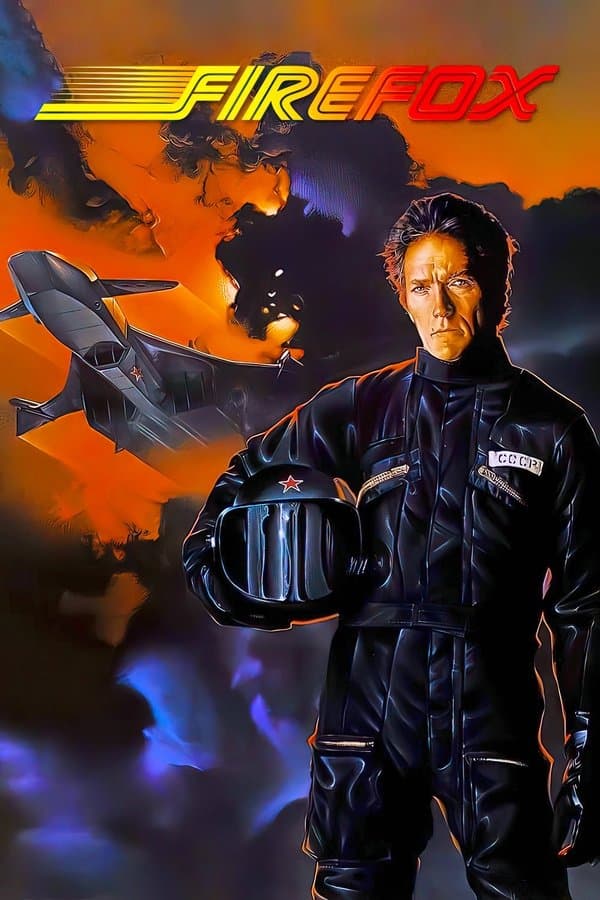
Firefox
1982 • Action, Adventure, Science Fiction, Thriller • PG
The Soviets have developed a revolutionary new jet fighter, called 'Firefox'. Worried that the jet will be used as a first-strike weapon—as there are rumours that it is undetectable by radar—the British send ex-Vietnam War pilot, Mitchell Gant on a covert mission into the Soviet Union to steal the Firefox.
Runtime: 2h 16m
Why you should read the novel
Craig Thomas’s novel Firefox delivers a richly detailed espionage thriller that delves deep into Cold War paranoia and the high-tech arms race. Where the 1982 film focuses intensely on visual spectacle, the book immerses you in the psychological tension of an elaborate spy mission. Reading the novel, you'll gain insight into the protagonist’s fragile state of mind and the complex international intrigue, with details and subplots not found in the movie. For fans of spy fiction and military thrillers, the book offers a more nuanced look at the era’s geopolitical stakes while exploring characters’ motivations and fears. Discover the origins of the story and enjoy the subtleties that didn’t make it onto the big screen by choosing the novel over its cinematic adaptation.
Adaptation differences
One major difference between Craig Thomas's Firefox novel and its 1982 film adaptation by Clint Eastwood is the depth of character exploration. The book spends significant time on Gant’s psychological trauma and inner conflict, giving readers a more complete understanding of his motivations and vulnerabilities, while the movie only hints at these aspects through visual cues and a few dialogues. The novel also provides more intricate background detail on the planning and execution of the mission, letting readers experience the full complexity of Cold War espionage that is streamlined in the film. Several secondary characters and subplot intricacies present in the book are either omitted or significantly condensed in the movie, resulting in a more straightforward, action-oriented narrative onscreen. The film adapts some of the technical elements and suspenseful moments for faster pacing and dramatic visuals, but often sacrifices the novel’s slower, methodical buildup. Ultimately, reading the book allows for a richer immersion in the story’s political, psychological, and technological themes, making it a fulfilling alternative to the cinematic version.
Firefox inspired from
Firefox
by Craig Thomas










